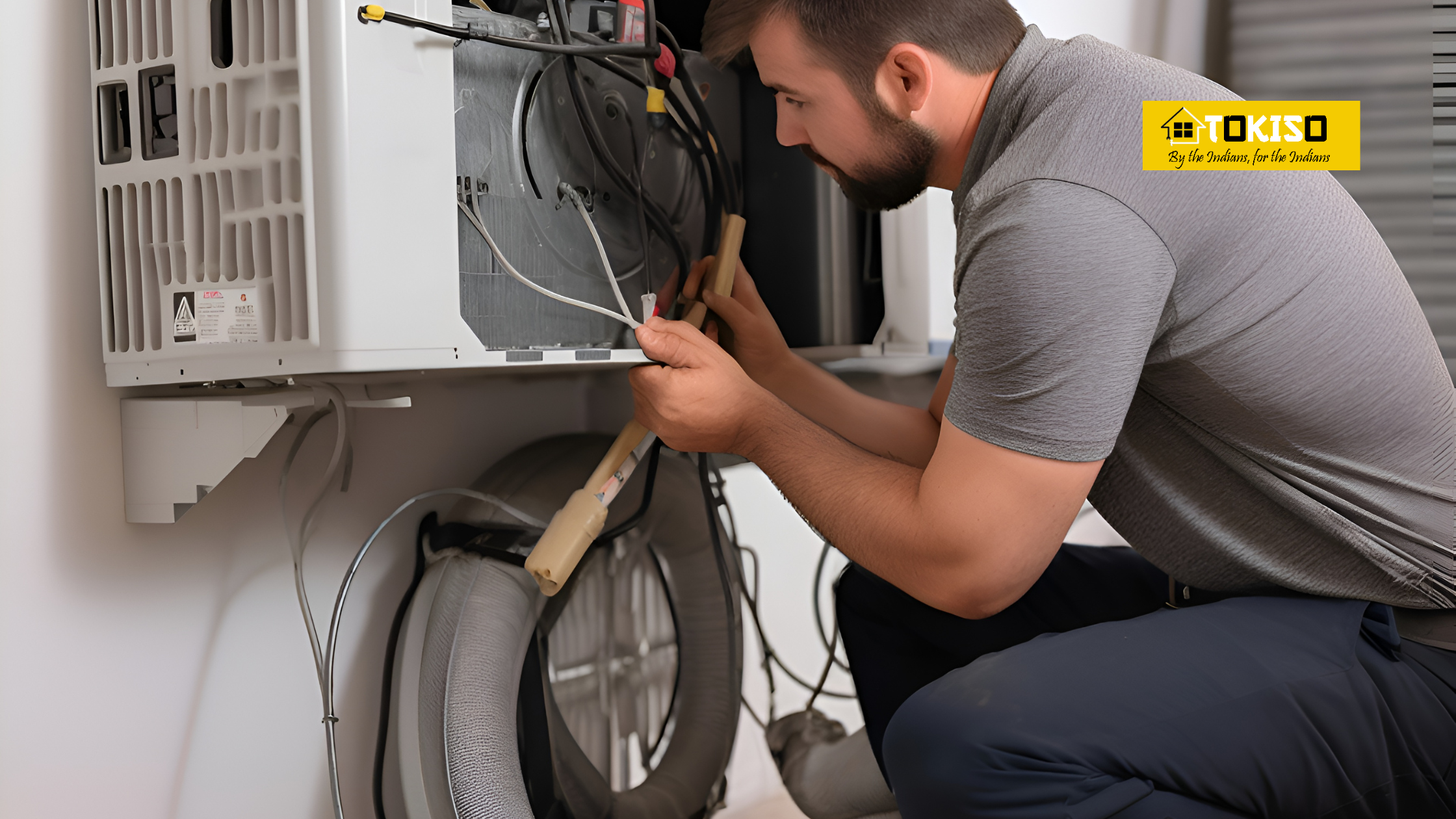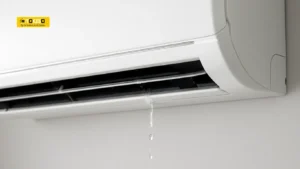An air conditioning unit that fails to turn on can be a major inconvenience, especially during the scorching summer months. This issue can arise from various causes, ranging from simple power problems to more complex mechanical failures. Understanding these causes and how to address them can save you time and money and help you stay cool and comfortable. Let’s understand the typical causes behind an AC unit not turning on and provide useful solutions to get it back up and running.
Common Causes of an AC Unit Not Turning On
1. Power Issues
Circuit Breaker Tripped: A tripped circuit breaker is one of the major common reasons an AC unit does not turn on. It may happen due to a power surge or an overload in the electrical circuit. Check your home’s electrical panel and reset the breaker if necessary.
Blown Fuse: A blown fuse might be if the circuit breaker is not the problem. Fuses can blow for various reasons, including age and electrical surges. Replacing the fuse can usually solve the issue.
2. Thermostat Problems
Incorrect Settings: Sometimes, the problem can be as simple as inaccurate thermostat settings. Confirm that your thermostat is selected for “cool” mode. The air conditioning temperature is lower than the current room temperature.
Dead Batteries: If your thermostat runs on batteries, dead batteries could prevent the AC unit from turning on. Replace the batteries and check if the unit starts working.
3. Wiring Issues
Loose or Disconnected Wires: Loose or disconnected wires can interrupt the power supply to your AC unit. Examine the wiring to ensure they are secure. If you are uncomfortable doing this, you should hire a technician to repair your AC in Nagpur or your local area.
Damaged Wires: Rodents or general wear and tear can damage wires, leading to a loss of power. Inspect the wiring, check if you found damage, and replace any compromised wires immediately.
4. Component Failures
Faulty Capacitor: The capacitor in your air conditioning unit supplies the initial burst of electricity required to start the motor. If the capacitor is faulty, it can prevent the unit from powering on. Fortunately, replacing the capacitor is a straightforward task that can restore your AC unit to working order.
Broken Contactor: The contactor functions as a switch that controls the electrical flow to the AC unit. If the contactor is faulty, the unit will not receive power. Replacing the malfunctioning contactor can restore the unit’s functionality.
Compressor Issues: The compressor is a critical component of your AC unit. If it fails, the unit won’t start. Compressor problems usually require professional repair or replacement.
Low Refrigerant Levels: Low refrigerant levels or leaks can prevent the AC unit from turning on. If you suspect a problem with the refrigerant, it is advisable to contact a professional for a proper diagnosis and refill to ensure the unit operates efficiently.
5. External Factors
Blocked Air Filters: When air filters become dirty or blocked, they restrict the airflow necessary for the AC unit to function properly. It can lead to overheating the A.C. unit, and shutting it down is a defensive measure to prevent damage. To avoid this problem, it is important to regularly clean or replace the air filters, ensuring smooth and efficient operation.
Obstructed Condenser Unit: Leaves, dirt, or grass clippings may obstruct the outdoor condenser unit. This can impede airflow, hindering the unit’s performance and efficiency. Regularly check the area around the condenser unit and remove any debris to ensure optimal functionality and prevent potential issues.
Steps to fix If an AC Unit Not Turning On Issues
Before inspecting or repairing your AC unit, always turn off the power at the breaker to avoid electrical shocks. If you need clarification or are uncomfortable with any step, it is safest to call a professional.
- Verify that the AC unit is connected to the power socket.
- Inspect the circuit breaker and reset the power supply systems if necessary.
- Inspect fuses and replace them if blown.
- Ensure it is set to “cool” and correctly set the temperature.
- Replace batteries if needed.
- Check for loose or disconnected wires.
- Look for any signs of damaged wires and replace them.
- Replace the capacitor if it is faulty.
- Check the contactor and replace it if necessary.
- Evaluate the possibility of compressor issues and low refrigerant levels and consult an AC technician if needed.
- Clean or replace air filters regularly.
- Assure the outdoor condenser unit is free from obstructions.
If Still AC Unit is Not Turning On, Take Professional Help!
If you have tried these troubleshooting steps and your AC unit still won’t turn on, it might be time to call a professional. AC repairing in Nagpur and other local services can diagnose and fix more complex issues that require specialized knowledge and tools. Ac technician can also provide regular maintenance to keep your AC unit in top condition and prevent future problems.
Take Your Final Call
An AC unit not turning on can be frustrating, but you can often identify and resolve the problem with a systematic approach to troubleshooting. Start with the basics, like checking the power supply and thermostat settings, then inspecting the wiring and key components. Regular care, such as cleaning air filters and ensuring the condenser unit is unobstructed, can prevent many common issues. If all else fails, seek professional AC repair services in Nagpur or your local area to get your unit back up and running efficiently. Stay cool and comfortable all summer by keeping your AC unit in optimal working condition.





This Post Has 8,911 Comments